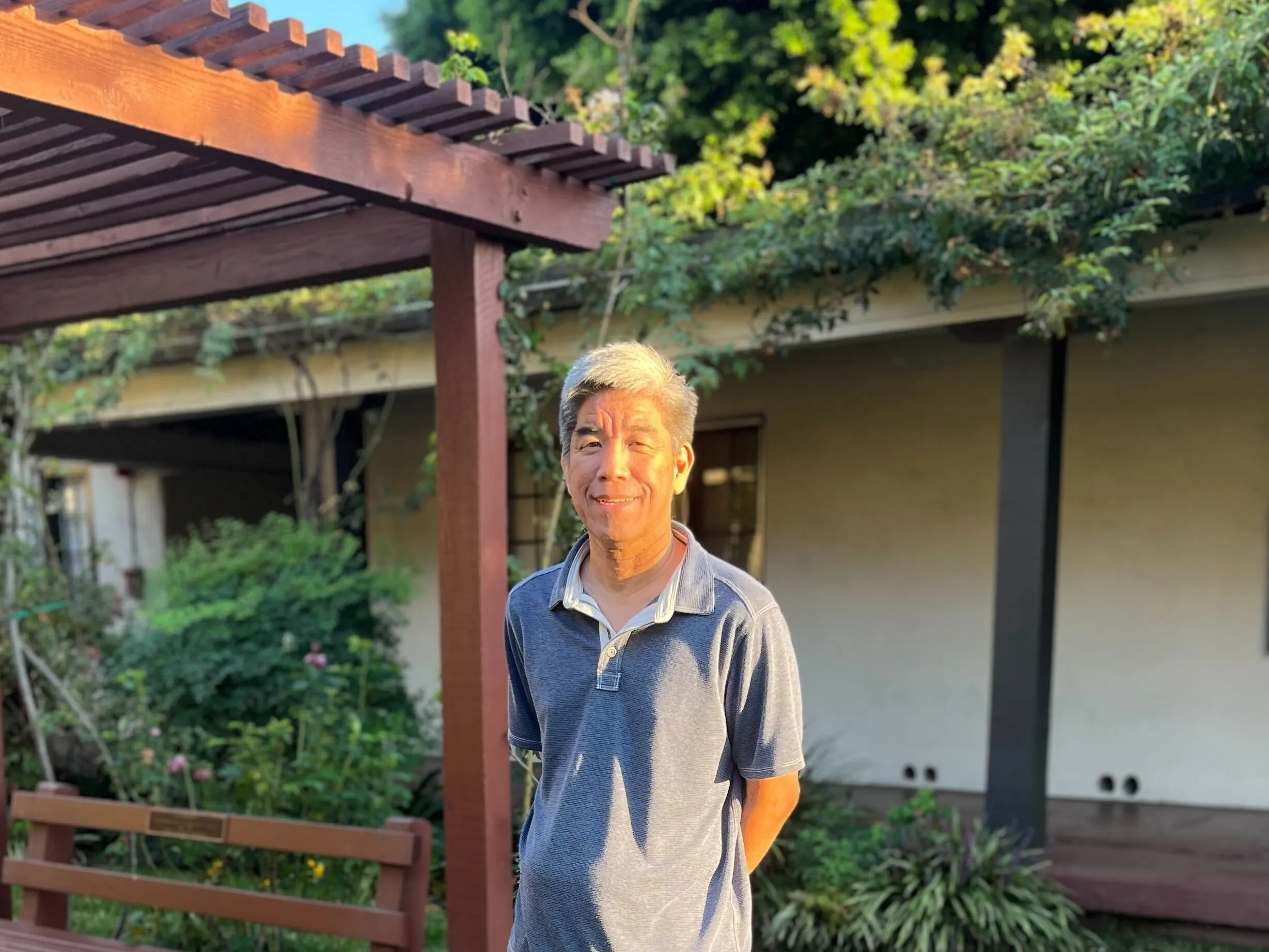- Home
- >
- APU Articles
- >
- News Article
Faculty Feature: David Miyahara, PhD Celebrates 30th Year of Supporting Sociology Students at APU
October 25, 2024 | Category Humanities and Sciences | Written By Jacqueline Guerrero

After moving to Los Angeles so that his wife could pursue a pediatric medicine residency, David Miyahara, PhD, found that his love for teaching in the college classroom setting could become a career reality at Azusa Pacific University. After starting as an adjunct professor, Miyahara is now an associate professor in the Department of Sociology, Teaching English to Speakers of Other Languages (TESOL), and Modern Languages. Miyahara is celebrating his 30th year as a full time professor at APU, and his passion for teaching and working with his students has only grown stronger.
Miyahara attended UC Irvine for his undergraduate studies and originally majored in psychology. As his studies progressed, he added a second major in sociology. Miyahara participated in a summer SAT prep program for high schoolers while at UC Irvine. “Through that experience, I realized that being a professor was something I was interested in,” he said. “I loved being in the college classroom environment.”
After graduation, Miyahara decided to apply for grad school at Stanford where he earned his masters and doctorate in sociology. “When I got to grad school, I discovered that while research was important to the field, teaching and being a teacher’s assistant (TA) in the classroom solidified that I wanted to go into the teaching side of higher education.”
Miyahara started his teaching career as a part time teacher at De Anza College in Cupertino. When his girlfriend (and now wife), a medical student, matched with a residency position at UCLA, she convinced Miyahara to move to LA with her after their wedding. Miyahara moved to LA without a job. “At the time, APU was searching for an adjunct sociology professor,” he said. “I was also teaching as an adjunct professor at other universities, but after my first year teaching at APU, I was able to land a full time professor position.”
While he didn’t have much experience in Christian education when he first started teaching at APU, Miyahara found that sociology and faith can be easily integrated. “Sociology studies current social issues, so there’s a natural opportunity to introduce and discuss faith,” he said. “It’s valuable and important to combine the two aspects because we need to talk about and emphasize how our faith relates to what’s going on in society.” Miyahara’s educational background influenced his view on faith integration in higher education. “I attended secular higher education institutions, and while they taught me how to become a good sociologist, they didn’t necessarily address why studying sociology mattered,” he said.
At APU, students have the opportunity to explore and discuss with their peers the significance of sociology as a broader subject but also how it affects us as individuals as well. I appreciate that I get to be a part of these discussions with my students.
Miyahara said that sociology is the perfect program for students interested in looking at different ways of life and finding ways to engage in the way that they look at society. The program is tailored to be applicable to both personal and career possibilities. “It’s a compelling field of study,” he said. “I chose to pursue it to learn how I can make sense of social forces and how they operate and influence others, and I hope other students will learn from it to see how they can have an impact in the field as well.”
Since moving to LA, Miyahara and his wife have had three children. “One aspect of being a professor that has been a blessing is that I have a flexible schedule,” he said. “I’ve been able to be involved in my kids’ life and I really value that. My goal has always been to support and raise them. My wife and I were together throughout my time in grad school, and she has been a big supporter of mine. Her own career keeps her busy, but we work together to do the best for our family.”
Miyahara’s love for his job translates into his desire for his students to succeed. “I simply love what I do and hope that my students appreciate that and find my teaching helpful,” he said. “I strive to make my students’ experience at APU the best it can possibly be and to support them both in class and after graduation.”